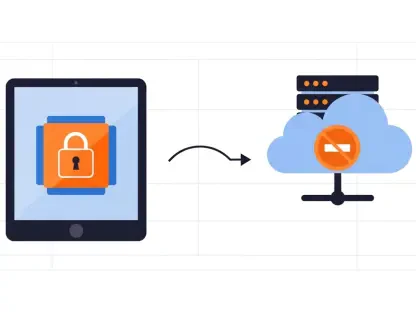As technology races forward at an unprecedented pace, industries and societies find themselves at a critical juncture where innovation is not just an advantage but a necessity for survival. The current landscape is defined by groundbreaking advancements that are reshaping how businesses operate, how cities function, and even how individuals interact with the world around them. From intelligent systems that operate with near-human autonomy to computational leaps that defy traditional limits, the tools and platforms emerging today are setting the stage for a transformative era. This exploration delves into the most influential developments driving progress, examining their potential to revolutionize various sectors while also addressing the hurdles that accompany such rapid change. With insights drawn from industry leaders and cutting-edge reports, the focus is on understanding how these innovations are carving out new pathways for growth and sustainability.
Revolutionizing Industries with Cutting-Edge Innovations
The Rise of Autonomous Intelligence Systems
The emergence of agentic AI systems marks a significant shift in operational capabilities across multiple sectors, as these technologies are designed to independently manage complex workflows with minimal human oversight. By integrating seamlessly with platforms like the Internet of Things (IoT) and blockchain, such systems enable real-time strategic decision-making that enhances efficiency in industries ranging from healthcare to logistics. Notably, these intelligent tools are being embedded into everyday devices through smaller, cost-effective multimodal models, drastically cutting down expenses while amplifying functionality. Cloud computing giants are pouring resources into building robust AI infrastructure, creating ecosystems that empower developers to innovate at scale. This trend signals a broader market movement toward monetizing artificial intelligence, positioning it as a cornerstone of modern business strategies and a driver of competitive advantage in an increasingly digital economy.
Beyond infrastructure, the impact of autonomous AI is evident in its ability to personalize user experiences and streamline processes that were once labor-intensive. For instance, in retail, these systems analyze consumer behavior in real time to offer tailored recommendations, while in manufacturing, they predict equipment failures before they occur, minimizing downtime. This adaptability is attracting significant investment from both established corporations and agile startups eager to capitalize on the technology’s potential. However, the rapid adoption of such systems also raises questions about data privacy and the ethical implications of delegating critical decisions to algorithms. As industries continue to embrace this wave of automation, striking a balance between innovation and accountability remains a pressing concern that will shape the trajectory of AI deployment in the coming years.
Quantum Leaps in Computational Power
Quantum computing stands at the forefront of technological breakthroughs, promising to redefine the boundaries of processing power with its ability to tackle complex simulations that traditional systems cannot handle. This technology’s potential to solve intricate problems in fields like cryptography and drug discovery is generating excitement among researchers and industry leaders alike. Unlike conventional computers, quantum systems leverage the principles of superposition and entanglement to perform calculations at an exponential scale, offering solutions to challenges that once seemed insurmountable. As investment in this field grows, major tech firms are racing to develop practical applications, signaling a future where quantum advancements could become integral to everyday operations across various domains.
Equally transformative are the strides in connectivity that complement quantum progress, such as enhanced 5G networks and edge computing, which are slashing latency and enabling real-time data processing for critical applications. These advancements are proving vital for innovations like autonomous vehicles and smart urban infrastructure, where split-second decisions can have significant consequences. Startups are harnessing these tools to create highly personalized AI solutions that cater to niche markets, drawing substantial venture capital in the process. Yet, the complexity of integrating quantum and connectivity technologies poses substantial technical challenges, requiring a skilled workforce and robust frameworks to ensure reliability. As these fields evolve, their convergence is expected to unlock unprecedented opportunities, provided the hurdles of scalability and security are effectively addressed.
Balancing Progress with Responsibility
Sustainable Solutions for a Greener Tomorrow
Sustainability has emerged as a cornerstone of technological innovation, driven by both regulatory mandates and growing consumer demand for environmentally conscious practices. Climate tech and biotechnology are leading the charge, with breakthroughs like nanotechnology for energy storage offering promising avenues to tackle pressing issues such as e-waste in consumer electronics. Major players in the automotive sector are integrating artificial intelligence with sustainable practices, particularly in the development of electric vehicles, achieving remarkable growth by aligning profitability with ecological goals. Digital transformation initiatives are also enabling businesses to adopt greener operations, from optimizing supply chains to reducing energy consumption, proving that environmental responsibility can coexist with economic success in today’s competitive landscape.
The push for sustainability extends beyond individual companies to entire industries, as collaborative efforts aim to address systemic challenges through shared innovation. Governments and private entities are partnering to fund research into renewable energy solutions and circular economy models, ensuring that resources are reused rather than discarded. While these initiatives show great promise, they face obstacles such as high initial costs and the need for widespread adoption to achieve meaningful impact. Additionally, the rapid pace of tech development often outstrips the creation of supporting policies, creating gaps that could undermine long-term goals. As momentum builds, the focus must remain on fostering scalable solutions that prioritize both planetary health and economic viability, ensuring that sustainability is not just a buzzword but a tangible outcome.
Navigating Security and Regulatory Challenges
The accelerated adoption of advanced technologies has brought with it a surge in cybersecurity threats, particularly in areas like blockchain and data science where vulnerabilities can have far-reaching consequences. Supply chain security has become a focal point amid geopolitical tensions and trade disruptions, with organizations scrambling to safeguard their networks against increasingly sophisticated attacks. The stakes are high, as breaches can compromise sensitive data and erode public trust in digital systems. Compounding these risks are the regulatory uncertainties fueled by shifting political landscapes and antitrust measures, which create a complex environment for tech giants striving to maintain compliance while pushing the boundaries of innovation.
Further complicating the landscape are the volatile dynamics of emerging sectors like cryptocurrency and media streaming, where rapid changes in market conditions add layers of unpredictability. Investment strategies are evolving in response, with a keen focus on fortifying digital infrastructure and nurturing talent to address these multifaceted challenges. Ethical considerations also loom large, as the integration of powerful technologies demands careful oversight to prevent misuse and ensure equitable access. Looking ahead, success in this arena will depend on the ability to anticipate threats and adapt to regulatory shifts, fostering a culture of resilience that can withstand the pressures of a fast-evolving digital world.
Reflecting on a Transformative Era
Looking back, the strides made in technology during this period underscored a profound shift in how industries and societies adapted to unprecedented change. The fusion of autonomous intelligence, quantum capabilities, and sustainable practices redefined operational norms, while the persistent challenges of cybersecurity and regulation served as stark reminders of the need for vigilance. As these innovations reshaped global markets, they also highlighted the importance of strategic foresight in navigating a landscape marked by both opportunity and uncertainty. Moving forward, the emphasis must be on cultivating collaborative frameworks that bridge technological advancements with ethical responsibility. Prioritizing talent development and robust security measures will be critical to sustaining momentum, ensuring that the lessons learned pave the way for a future where progress is both inclusive and resilient.









